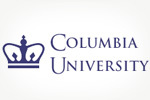Project Profile
Globalization and International Development
Columbia University
Abstract
The IGERT program at Columbia University will be a new interdisciplinary graduate training program in the study of globalization and international development. Globalization can be a powerful engine for international development, but in many developing countries globalization has instead meant rising poverty and inequality. Columbia has brought together a distinguished… more »
The IGERT program at Columbia University will be a new interdisciplinary graduate training program in the study of globalization and international development. Globalization can be a powerful engine for international development, but in many developing countries globalization has instead meant rising poverty and inequality. Columbia has brought together a distinguished interdisciplinary social science faculty to investigate why, and to provide a deeper understanding of the impact of globalization on developing countries. Through the IGERT program, these faculty will train the next generation of researchers in new models and new methods for studying international development.
The IGERT trainees will be drawn from the departments of economics, political science, sociology, the newly created program in development studies, and from the urban planning program. The program combines a rigorous disciplinary grounding, acquired chiefly during the first two years, with an intensive and interdisciplinary training experience that includes a semester-long course in globalization taught by the PI; a two-semester interdisciplinary foundations course in international development (to be created specifically for the IGERT program); an integrated mentored team research experience; and a research internship on a faculty-led project. Columbia’s program has a strong international dimension. All IGERT trainees will undertake a summer research internship abroad, accompanied by training in research ethics with a focus on international issues and by intensive language training as needed. The program also includes funding for symposia and smaller-scale dialogues that will attract international researchers and policymakers. Through this curriculum, the trainees will gain a firm disciplinary grounding along with an understanding of key concepts and approaches of the other disciplines. This interdisciplinary fluency will permit more effective cross-disciplinary collaboration as well as innovation through the appropriation of ideas and tools across disciplinary boundaries.
The intellectual merit of the IGERT program is in the commitment to bring new disciplinary and cross-disciplinary perspectives and tools to bear on the problem of globalization and international development. To better understand the implications of globalization for economic development, models are needed that systematically incorporate the social and political institutions, rule of law, transparency, and other factors that can modify or enhance the impact of markets, as well as the geographic and environmental factors that can shape the course of development. This research will necessarily be more analytically complex, modeling interdependence among countries and regions and examining the pacing and sequencing of development. The program will have significant broader impacts of two main kinds. First, it will develop new graduate curricula in globalization and development, including course syllabi, that will be available to other institutions through the program website. Second, it will disseminate research by IGERT faculty and student trainees to scholars and policymakers via major symposia on international development as well as smaller-scale dialogues.
IGERT is an NSF-wide program intended to meet the challenges of educating U.S. Ph.D. scientists and engineers with the interdisciplinary background, deep knowledge in a chosen discipline, and the technical, professional, and personal skills needed for the career demands of the future. The program is intended to catalyze a cultural change in graduate education by establishing innovative new models for graduate education and training in a fertile environment for collaborative research that transcends traditional disciplinary boundaries. In this sixth year of the program, awards are being made to institutions for programs that collectively span the areas of science and engineering supported by NSF. « less
Contributions[?]
Project members' contributions to the library and showcase are listed here.
See All 12 Contributions »





